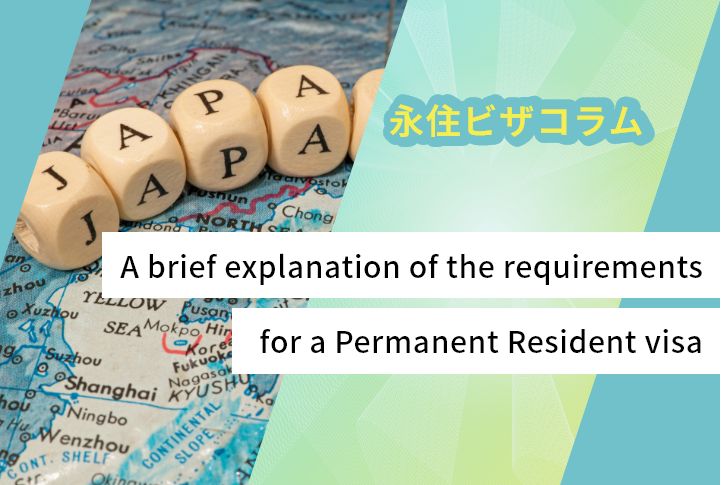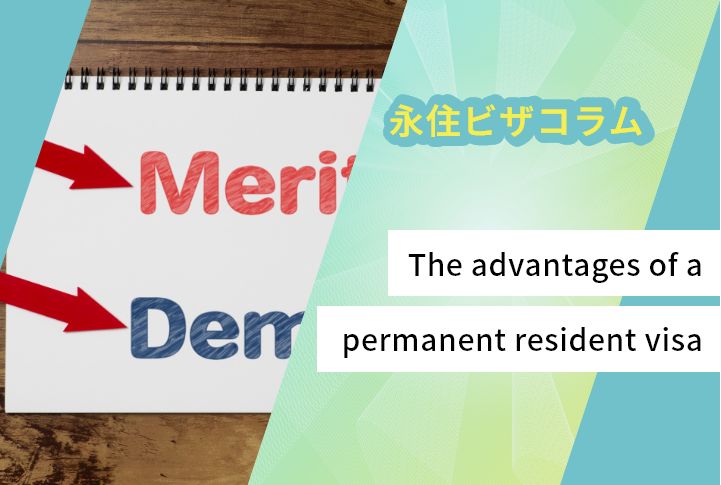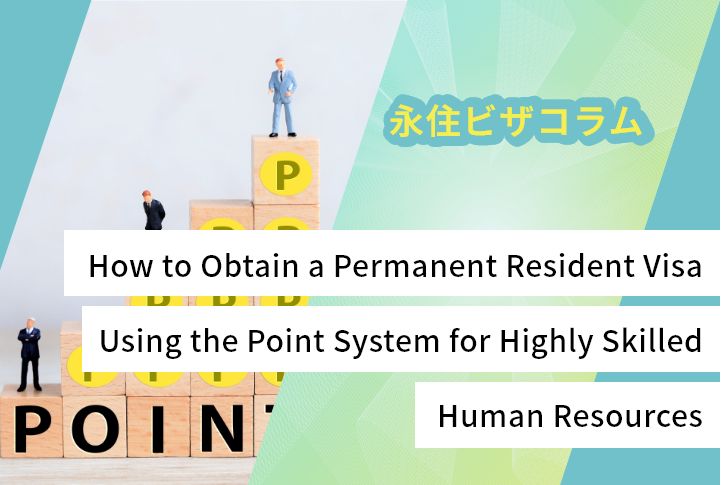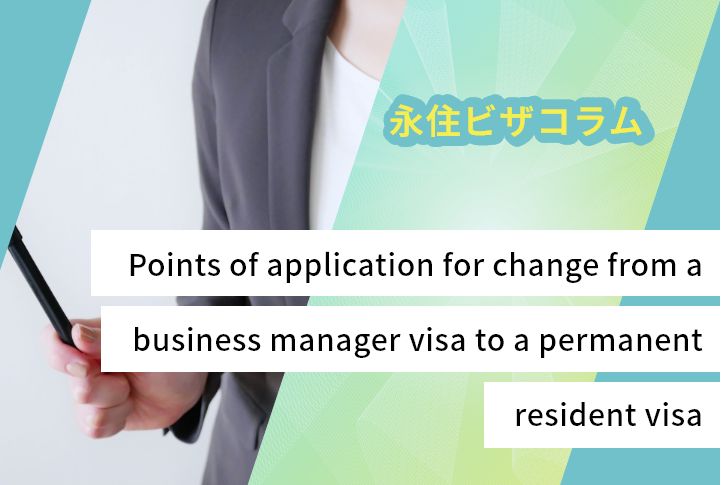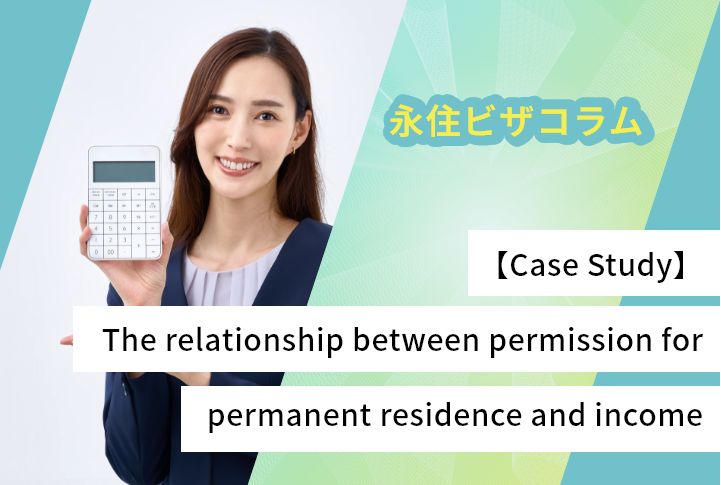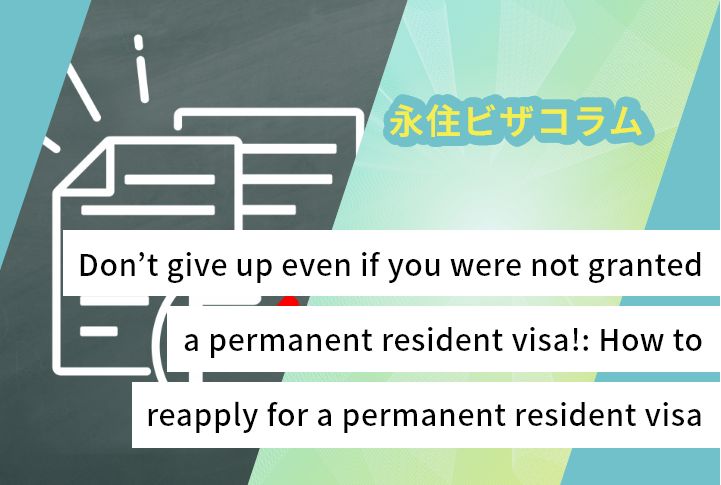Tips to apply for permanent residence to change from the status of long-term resident
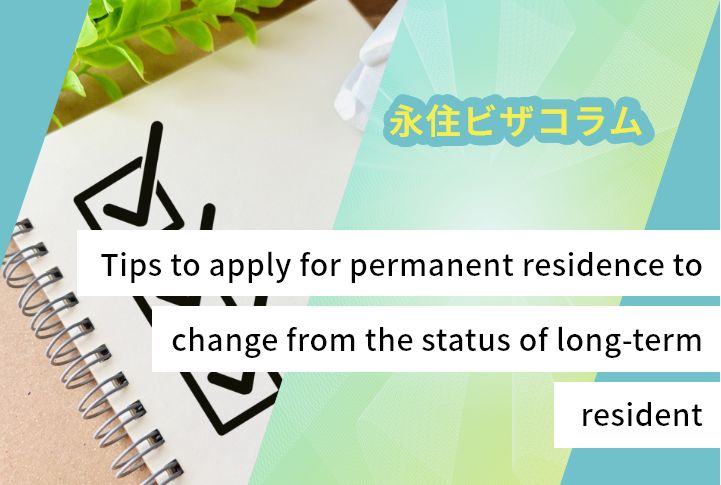
A visa for long-term resident was established to accept foreigners who have special reasons to stay in Japan; 3rd and 4th generation persons of Japanese descent, children of foreigners whose spouses are Japanese, biological children of permanent residents, people who divorced from their Japanese spouses, people whose Japanese spouses passed away, etc.
Many holders of a visa for long-term resident live in Japan for a long period of time due to their background that are the basis of the visa, and therefore wish to obtain a permanent resident visa to live in Japan more stably.
In this article, we would like to show you the important points when applying to change your status of residence from long-term resident to permanent residence.
Index
1.Years of residence
In principle, you must have stayed in Japan for 10 years or more to receive permission for permanent residence (requirement of residence in Japan), but this requirement has exceptions. The required period is shortened for anyone who falls under any of the types that require strong bonds with Japanese society.
The requirement of residence in Japan is satisfied when a holder of a visa for long-term resident stay in Japan for 5 consecutive years or more after the grant of the visa for long-term resident. The counting of 5 years starts since “the grant of a visa for long-term resident,” and therefore, if the person had a different type of visa before the status of long-term resident, the counting starts since the date of permission for the status of long-term resident.
With that being said, if a foreigner marries a Japanese and stays in Japan under the status of “Spouse or Child of Japanese National,” but then gets divorced and changes his/her status to long-term resident, he/she can add up the years of residence under the status of “Spouse or Child of Japanese National” and the years of residence under status of long-term resident. If the total is 5 years or more, he is subject to the special provision of shortened period.
2.Income
To obtain permission for permanent residence, “the Foreign National must have sufficient assets or skills to make an independent living” (Article 22, paragraph 2 of the Immigration Act. The requirement of independent living). The authority determines whether the foreigner can continue to live stably or not, based on the number of the people in the household of the applicant, income of the whole household, area of residency, ages of the members in the household, etc.
There is no absolute standard, but it is said that income of 3 million yen or more is required in case of changing to permanent residence from a work visa. On the other hand, in case of changing from a status of residence of status or position, the income required to satisfy the independent living requirement is said to be relatively lower.
Nevertheless, in case of welfare-payment recipients, there is a very high risk that they are deemed not to meet the independent living requirement. There is a tendency that foreigners whose income is less than 2.5 million yen, more or less, are not granted permanent residence (permission for permanent residence is not rejected on mere fact of receiving welfare-payment, or income less than 2.5 million yen).
3. Duty to support relatives
Duty to support relatives is a point that is easily missed.
Often times, the relatives of the holders of a visa for long-term resident live in Japan. Especially, most of persons of Japanese descent have relatives in Japan.
If relatives live in Japan, receiving welfare-payment, the applicant’s duty to support them becomes an issue.
In Japanese civil law, lineal relatives (chokkei ketsuzoku. i.e. relatives related by blood such as grandparents, parents, child, and grandchild) and siblings have duty to support each other (Article 877, paragraph 1, Civil Law). In other words, if your parents or siblings related by blood have financial difficulties, you have to support them. In case that lineal relatives or siblings are on welfare, even if the applicant is not on welfare, the applicant can be regarded as not performing his/her duty, which can affect the application for permanent residence.
The fact that lineal relatives or siblings are on welfare alone does not cause non-permission of permanent residence. There are cases where permanent residence was granted regardless of the relatives on welfare. In these cases, the applicants were considered to fulfill their obligation to support relatives, based on their incomes, the amounts of money sent to relatives per month, other payments made by relatives, etc.
4. Behaviors
Many of the holders of a visa for long-term resident have lived in Japan since an early age or were born in Japan. Such people tend to live in a community formed by people from the same country, which causes them to be easily involved in crimes of drugs, violence, etc.
If the person violates criminal law, permanent residence will no
t be granted for 5 years since the punishment (or since the expiration of the period of stay of execution, if applicable).
If the person has a criminal record, the time and the details of punishment need to be paid attention in order to decide when to apply for permanent residence.
5. Summary of “Tips to apply for permanent residence to change from the status of long-term resident”
As described in the beginning, the visa for long-term resident was established to accept those who have special reasons to stay in Japan. Such visas are given to people who have strong bond with Japan, so many of them probably wish to continue staying in Japan for a long time.
In this article, we have seen the tips to apply for a permanent resident visa to change from a visa for long-term resident.
Daiichi-Sogo Group supports application for permanent residence, so the holder of a visa for long-term resident can live in Japan with a feeling of security.
Please feel free to contact us if you consider obtaining permanent residence!








